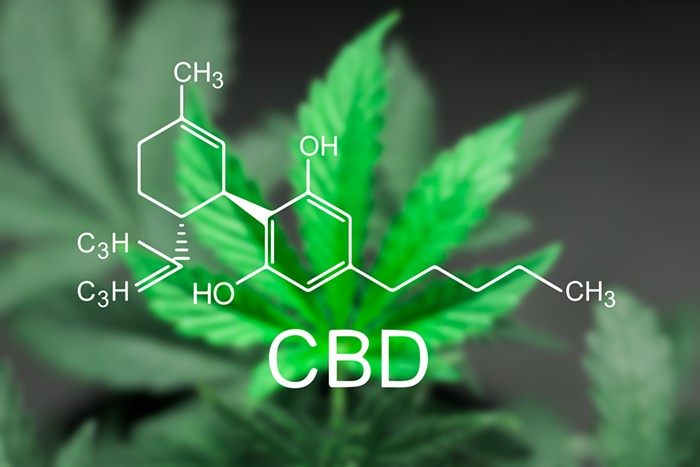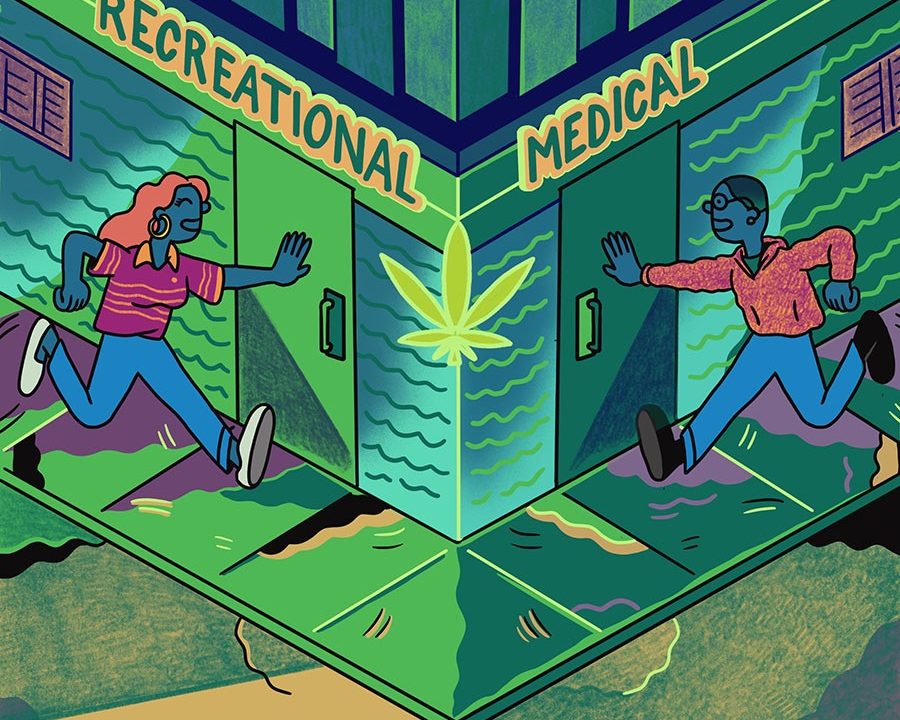
Get Your Medical Cannabis Card
Phone(773) 420-7994
ContactDrop Us A Line
Location1552 W Fullerton Ave #100
Chicago, IL 60614
-
HoursMonday – Friday: 10am-6pm
Saturday & Sunday: 10am-3pm
Get Your Medical Cannabis Card
Phone(773) 420-7994
ContactDrop Us A Line
Location1552 W Fullerton Ave #100
Chicago, IL 60614
-
HoursMonday – Friday: 10am-6pm
Saturday & Sunday: 10am-3pm
Understanding CBD: A Clinical Overview of Cannabidiol

3 Reasons to Still Get Your Medical Cannabis Card in IL Following Legalization
06/06/2019
WGN: CBD is exploding in the marketplace, helping humans, animals with aches and pains
07/11/2019by Dr. Rahul Khare, Founder of Innovative Care & Board Certified Emergency Room Physician
Cannabidiol, commonly referred to as CBD, is a new and relatively understudied medical treatment for pain, including back pain. CBD seems to reduce back pain for some people and does not come with the high or psychogenic effects of marijuana.
How Does CBD Treat Back Pain?
Research indicates that CBD may reduce back pain by:
- Reducing inflammation[1]
- Combating anxiety, often associated with long-lasting or chronic back pain[2]
- Helping with sleep and improve overall state of relaxation
Some studies suggest that CBD can have an effect on how an individual perceives pain, but more robust research is needed.[3] CBD is generally considered a full-body treatment, which means that it does not target back pain specifically, but contributes to an overall feeling of relaxation and pain relief.
To learn more about how CBD is playing an important role in treating chronic pain and addressing the opioid epidemic, click here!
Advocates of CBD believe it can be used to treat a range of conditions in addition to back pain, such as arthritis and multiple sclerosis.[4]
Potential Risks and Side Effects of CBD
CBD, even in high amounts, is generally safe. A person may experience these mild side effects:
- Drowsiness
- Dizziness
- Dry mouth
- Low blood pressure
More severe side effects, while rare, include:
- Mental confusion
- Nausea
- Vomiting
- Diarrhea
 As with other natural products, there is potential for adverse reactions with other medications, especially those that come with grapefruit warnings, such as certain blood thinners. It is important to check with a health care provider before using CBD.
As with other natural products, there is potential for adverse reactions with other medications, especially those that come with grapefruit warnings, such as certain blood thinners. It is important to check with a health care provider before using CBD.
Is CBD legal?
Before purchasing and using CBD, a person should check how a particular product was derived. Most CBD products derived from the hemp plant are legal in the United States. CBD products derived from marijuana plants with high levels of THC are only legal in states where marijuana has been legalized for medical or recreational use. How the CBD product was derived should be on the ingredient list.
The Food and Drug Administration (FDA) does not consider dietary supplements marketed to treat certain medical conditions, or food products that contain CBD to be legal, however, these products are still widely available for purchase. Due to this lack of regulatory oversight, people should be cautious and speak with a health care professional before using certain products.

Since the CBD industry is evolving, regulations may change in the future.
What Is CBD?
The cannabis sativa plant has over 100 chemical compounds, called cannabinoids, that have a range of effects, including anti-inflammatory and analgesic (pain relieving) qualities.
The cannabis sativa plant has two main varieties that are grown for specific purposes:
- THC content. THC is the compound associated with the “high” feeling of marijuana use.
- Industrial (non-drug) uses. This form of the plant contains very trace amounts of THC (less than .03%) and can be used to make paper, clothing, and some building material. This variation of the cannabis plant is called hemp.

While CBD is present in both varieties, many of the CBD products available to consumers are from the hemp plant.
Considering Different CBD Products for Back Pain
People with back pain can choose from many different forms of cannabidiol (CBD) products, including edibles, oils, tinctures, and creams. These products are available over-the-counter at stores and online.
CBD is a relatively new to the health and wellness industry. Some products may make claims not supported by scientific evidence or may not actually contain potent levels of CBD.
What to Look for When Purchasing CBD Products
Because of the abundance of types and companies that produce them, a person should look out for certain things when purchasing CBD products:
- Third-party testing. Look for products that have been tested by a company other than the one selling it. Third-party testers are concerned with what is in the product regardless of what the manufacturer says.
- Clear and accurate labeling. Manufactures should make testing results accessible and easy to understand on the label and online.
- Continuous testing. Each “batch” of a product can vary in quality and contents. Reliable manufactures regularly test their products and will update the testing results on the labels and online.

CBD requires more research in order to prove and explain its effectiveness.
Types of CBD Products Available
Currently, there are no CBD products available that specifically treat back pain. Some of the most common CBD products that may be used to treat back pain include:
- CBD oil is extracted from the plant through a variety of methods. It can be taken orally, vaporized, or mixed into beverages. Generally, oil is what is used in other CBD products, such as pills, creams, and sprays, but can also be used alone.
- A tincture is made by soaking cannabis flowers in alcohol for an extended period of time. This process will extract the CBD into a more concentrated form than found in most CBD oil products. Generally, tincture bottles are designed with a built-in dropper so a person can take one drop or several. Tinctures can be used on their own or mixed with food or beverage.
- CBD can be mixed into foods and drinks. CBD edibles are available to purchase, however, they are not considered legal by the FDA. They can also be made at home by mixing CBD oil or tinctures into food and drinks. Examples include baked goods, gummies, and chocolates.
- Creams and gels. CBD-infused lotions are considered topical because they are applied to the skin. CBD-infused creams and gels are able to break the skin and muscular barrier which makes them a good solution to back or neck pain, and they have been shown to reduce inflammatory and neuropathic pain.[5]

Choosing the correct CBD product to alleviate your back pain symptoms may require trial and error in order to find the correct delivery method and dosing.
Works Cited
[1] Russo EB. Cannabinoids in the management of difficult to treat pain. Ther Clin Risk Manag. 2008;4(1):245–259. doi:10.2147/tcrm.s1928
[2] Crippa, J. A. S., Derenusson, G. N., Ferrari, T. B., Wichert-Ana, L., Duran, F. L., Martin-Santos, R., … & Filho, A. S. (2011). Neural basis of anxiolytic effects of cannabidiol (CBD) in generalized social anxiety disorder: a preliminary report. Journal of Psychopharmacology, 25(1), 121-130.
[3] Genaro K, Fabris D, Arantes ALF, Zuardi AW, Crippa JAS, Prado WA. Cannabidiol Is a Potential Therapeutic for the Affective-Motivational Dimension of Incision Pain in Rats. Front Pharmacol. 2017;8:391. Published 2017 Jun 21. doi:10.3389/fphar.2017.00391
[4] Corey-Bloom J, Wolfson T, Gamst A, et al. Smoked cannabis for spasticity in multiple sclerosis: a randomized, placebo-controlled trial. em>CMAJ. 2012;184(10):1143-50
[5] Jorge LL, Feres CC, Teles VE. Topical preparations for pain relief: efficacy and patient adherence. J Pain Res. 2010;4:11-24. Published 2010 Dec 20.
Featured Image Credit: portlandmercury.com/




